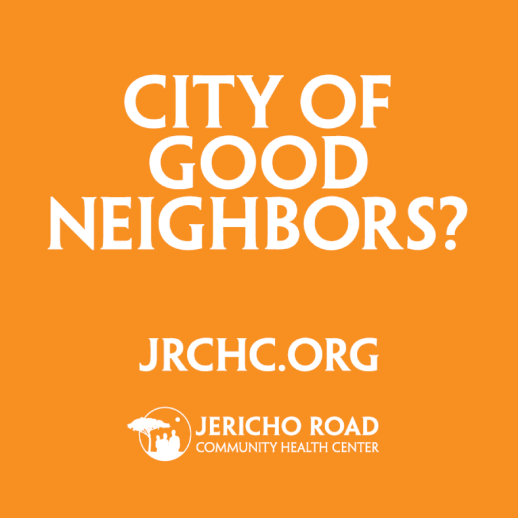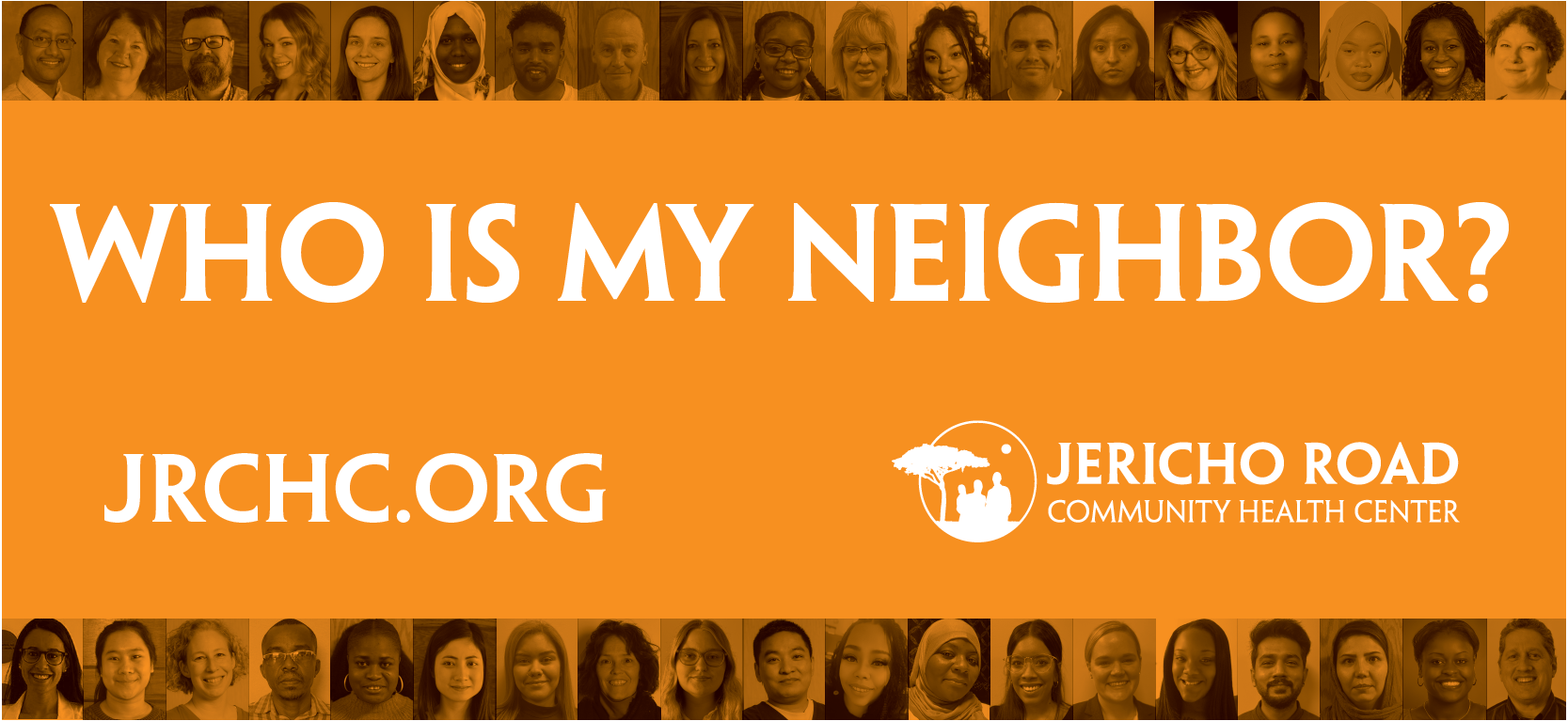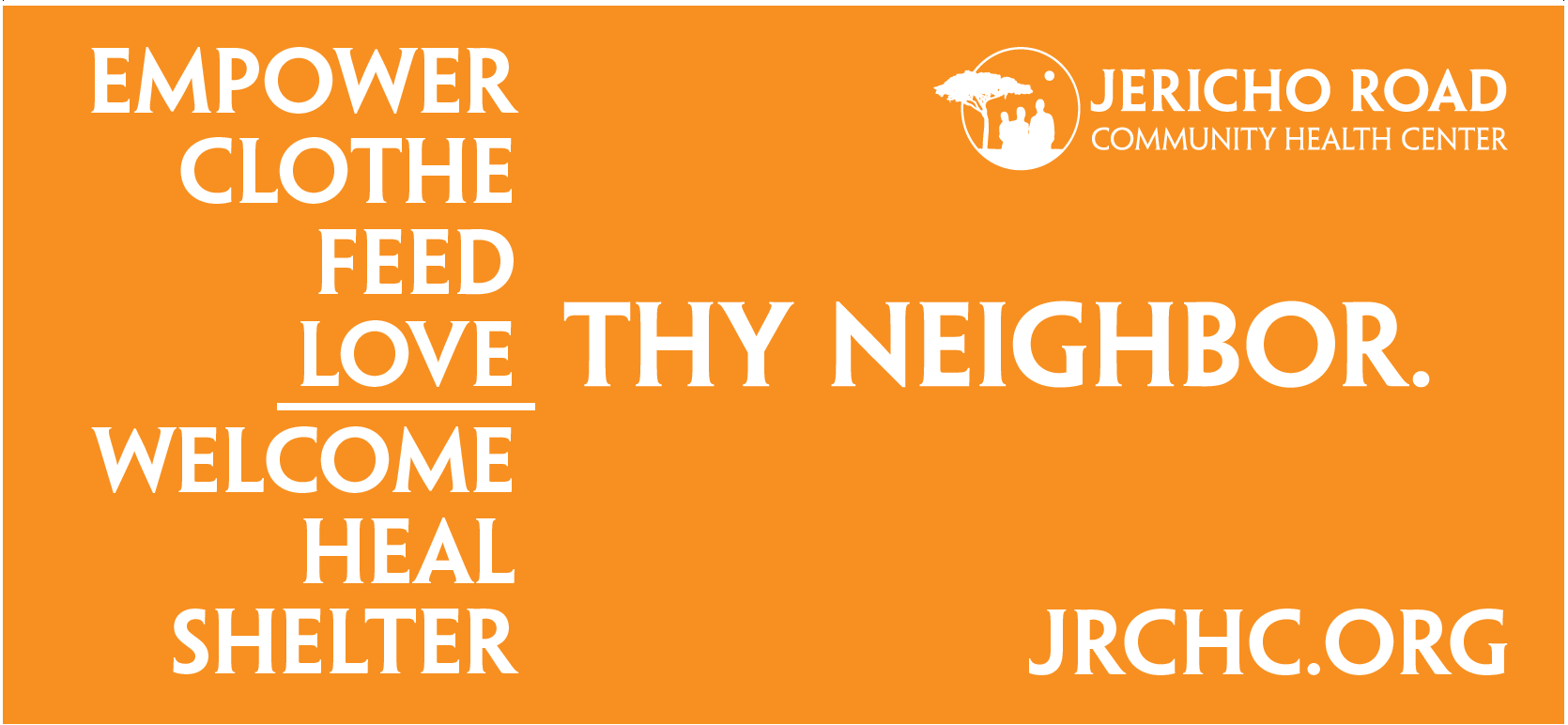

And Who Is My Neighbor?
In 1997, when we opened a tiny family medical practice on the Westside of Buffalo we needed to choose a name. I suppose we could have called it Barton Street Family Practice. But instead we chose “Jericho Road Family Practice” based on the story of the Good Samaritan that Jesus told according to a passage in the Gospel of Luke. A rich young attorney walked up to Jesus and challenged him to define what he needed to do to inherit eternal life. Jesus asked what he thought, and the young man replied, “Love God with all your heart, mind and soul and love your neighbor as yourself.” Jesus told him that this was the perfect answer.
The rich young man could have walked away at that moment, satisfied, but I think he was struggling with the practical implications of his answer. He persisted. He asked Jesus another question: “And who is my neighbor?” Jesus then told the following powerful story:
A Jewish man was traveling on the Jericho Road from Samaria to Jerusalem when he was accosted by robbers, beat up badly and left for dead alongside the road. A priest came by and saw him lying there, and instead of stopping to help, he kept going on his way. A law professor also declined to help. It was a Samaritan man who, seeing the nearly dead man, stopped. He put him on his donkey and took him to the local medical center, where he paid for him to be nursed back to life.
(Abridged version of Luke 10:25-37)
Jesus’s audience must have been shocked by this twist in the story. Jews and Samaritans were sworn enemies. For centuries, they had been taught by their parents to hate each other. Jewish people did everything they could to avoid even traveling through Samaria. Yet in this story, it was not the Jewish priest or teacher of the law who was the hero but instead a Samaritan, an enemy, who cared enough to help and whose actions exemplified what it meant to love one’s neighbor.
In telling this story, Jesus shattered the idea that our neighbor is someone who looks like
us, lives on our street, speaks our language or shares our cultural background. Instead, “neighbor” is anyone we contact along life’s pathway who is in need.
So, we chose to call our fledging medical practice “Jericho Road,” to remind us every day that to follow Jesus means to love God and to love our neighbor, whoever and wherever they are. Now, 28 years later, I think about what I have witnessed as a family doctor working on the East and West sides of Buffalo all of these years. Ta-Nehisi Coates writes in his new book called “The Message” that “you cannot act upon what you cannot see”. Well, I have seen much injustice. Almost too much to bear.
I have witnessed my uninsured neighbors in Buffalo become blind because they could not afford to get cataract surgery, refuse to get treatment for lung cancer, die from a stroke due to not being able to afford the medication, lose a limb because they were unable to afford insulin and present with hernias the size of footballs because they could not afford the surgery.
I have witnessed my African American neighbors who grew up on the East Side of Buffalo too often die young. These neighbors were more likely to get covid, be admitted to the hospital with a covid illness and then more likely to die from covid. Too many of my patients have died before their time from untreated hypertension, diabetes and heart disease. More than 400 years of slavery, racism, poverty and discrimination have caused deep disparities in health care outcomes for Black folks compared to White folks. Buffalo remains a racially divided city where your zip code alone can determine your life expectancy. My neighbors are suffering because of this deeply ingrained injustice.
I have witnessed my neighbors’ children suffering from high lead levels, simply by existing inside of their own homes. Kids living in Buffalo have some of the highest lead levels in the country, due to the lead found in pipes and paint within our old housing stock. 44% of children with high lead levels in Erie County are patients of Jericho Road—a statistic that paints a picture of the poverty that plagues so many in our community.
I have witnessed my neighbors who have come to Buffalo as refugees and asylum seekers struggle to make a new life for themselves and their families. Yes, Buffalo has been welcoming to most. But it is difficult to forge a new life in a foreign land and too often these neighbors have been forced to live in the oldest, most beat up houses, take the most menial jobs and struggle to learn enough English. As if they did not lose enough when they fled their homes, the recent uptick in hateful speech as well as the threat of deportation and separation from their families has created extreme fear and stress.
I have witnessed my neighbors in rural Sierra Leone, war torn Eastern Congo and the remote Himalayan mountains of Nepal lack access to even basic health care services. How is it acceptable that in rural Sierra Leone a mother has a 1 in 17 chance of dying during childbirth and a newborn baby has a 20% chance of dying before its first birthday. What kind of world are we living in where it is acceptable to have entire communities of people have no access to X-rays, CT scans, basic health care and a safe place to deliver babies?
Because I have seen so much injustice with my own eyes, I cannot keep silent. It is time for people of goodwill in Buffalo to come together and to act in ways that bring justice and health to all of our neighbors, not just for those of us who are privileged and fortunate.
In this moment of time in our nation, when it feels like there is so much division, too much hatred and not enough caring, it seemed important to challenge all of us to consider the basic notion of “Who is my neighbor?” And what does it mean to “love thy neighbor?”
-Dr. Myron Glick, Founder and CEO

See This Story In The News:
Channel 4
Channel 7
Buffalo News

